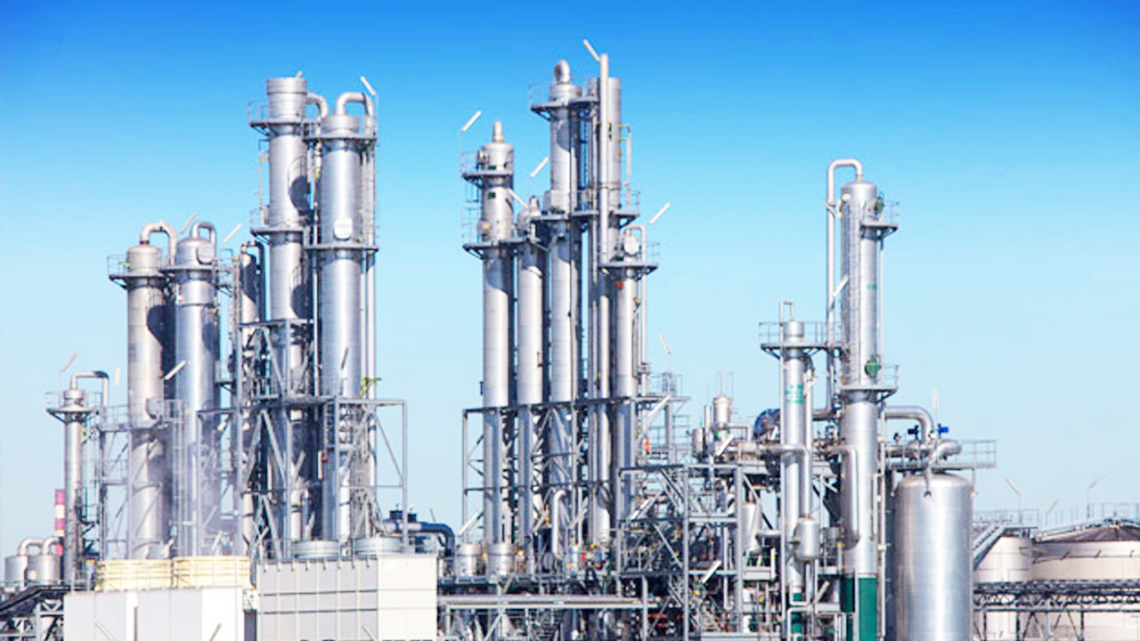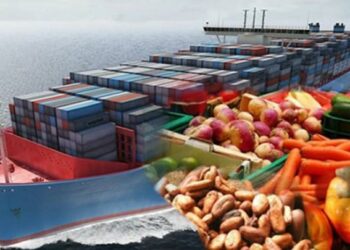There were though mixed reactions among key industry operators when President Muhammadu Buhari’s administration initiated the Modular refinery policy making it a major initiative in the quest to reposition the Petroleum sector.
Government gave traction to it through the Petroleum Industry Roadmap, otherwise known as the Seven Big Wins.
Government believes strongly that encouraging the establishment of modular refineries, MRs in oil producing corridors would drastically reduce the nation’s dependence on imported refined petroleum products and end the perennial shortage of products. Government has huge expectations that such mini-industries would curb the multifaceted scourge of pipeline vandalism, crude oil the and illegal refining and the attendant environmental degradation. Some industry watchers also believe that MRs have the potential to create jobs and address youth restiveness in the Niger Delta region.
Nonetheless, critics wonder why it took government many decades to come up with policies supporting the establishment of modular refineries. Petroleum sector experts, like Prof Godwin Igwe, had over the decades, recommended modular refineries as an alternative to the persistent poor performance of the nation’s big refineries and the near total reliance on importation for all our refined petroleum needs. The only operational, legal and commercial modular refinery in Nigeria then is the Niger Delta Petroleum Resources (NDPR), at Ahoada, Rivers State, which was established in 2008.
It has been said that the pervasive illegal and crude refining in the creeks of the Niger Delta is a form of modular refining. It is unarguable, however, that the methods used by the refiners in the creek, especially getting their feed stock, is criminal, and their distillation processes are crude and economically, environmentally as well as socially destructive.
Excitedly, Vice President Yemi Osinbajo became a strong advocate of modular refineries and chaired a meeting of Niger Delta Inter-Ministerial Committee in January 2018, where it was confirmed that 38 Green field and modular refinery investors planned to set up in the Niger Delta region and at least 10 of the investors are at advanced stages of developing their MRs. In this list are Amakpe International Refinery, Resources Petroleum & Petrochemicals, and Azikel Petroleum Limited, the later located adjacent to the Shell Gbarain-Ubi Gas gathering facility in Obunagha-Gbarain, Bayelsa State.
However, several years later, the initiative is yet to produce the anticipated result as some critical issues around funding and crude supply constraints precipitated their inability to materialize.
Unfortunately as it were, Nigeria’s bid to bolster its local crude refining capacity through the construction of modular refineries ran into a hitch due to funding challenges and rising cases of sabotage attacks on pipelines and oil theft, according to officials familiar with the projects.
The Nigerian Content Development and Monitoring Board, NCDMB and the Nigerian Upstream Petroleum Regulatory Commission, NUPRC, which are jointly managing the construction of the modular refineries along with private promoters, had listed three of such facilities to come on stream by the end of December 2021.
The facilities located in Niger Delta states of Edo, Rivers and Bayelsa with a combined capacity to refine 32,000 b/d of crude were at several of stages of completion in 2021.
Modular refineries are crude oil processing facilities with capacities of up to 30,000 b/d, and are being built as part of plans to curb oil theft and promote peace in the country’s main oil-producing region.
“They could not commence production as scheduled due to some operational issues,” a close source in the industry said.
“Because many of the project promoters are non-producers, they needed to engage and reach agreement with producers for the supply of crude feedstock and these are yet to be finalized,” the source said.
Representatives at NUPRC said funding challenges encountered by the project owners, as well as concerns over the rising cases of pipeline breaches in the Niger Delta, halted progress work on the modular refineries.
“Even though two of the facilities scheduled to be commissioned in December [2021] were actually on test-run, but there were fears over the integrity of pipelines being vandalized almost on daily basis, which have threatened the viability of the projects,” the agency said.
The three facilities were among more than 20 licenses issued by the the federal government to private investors.
The Nigerian National Petroleum Company Ltd. in data released December 2021 said it recorded a rise in pipeline attacks, which affected crude oil deliveries to Nigeria’s Forcados, Bonny, Odudu, Brass, Yoho, Erha, Ajapa and Aje oil export terminals.
In October 2020, Nigeria’s first modular oil refinery, built by Waltersmith Petroman Oil and NCDMB, began production with an initial capacity to refine 5,000 b/d of crude.
All of Nigeria’s refineries are currently offline due to technical and operational problems.
The coming on stream of the modular refineries and an increase in local oil products supply was one of the conditions laid down by Nigerian labor unions and rights group before backing the government’s decision to abolish subsidies on imported gasoline, slated to be implemented in the second half of 2022.
“We are not able to refine our crude locally. The modular refineries that can be built in 12 months or 18 months, the government has not been able to do that,” the president of the Nigeria Labour Congress Ayuba Wabba said ahead of a planned warning strike by the union slated early this year to protest against the removal of the fuel subsidy.
In a bid to forestall the workers’ protest, the government has put on hold its plan to abolish subsidies on imported gasoline, Finance Minister Zainab Ahmed announced in January.
“The timing [of ending subsidy] is problematic; there is still heightened inflation, hence the removal of subsidy will rather worsen the situation, thereby imposing more difficulties on the citizens,” Ahmed said in a statement.
Our Correspondent reports that owners of the modular refineries listed their major challenges as lack of access to feedstock, lack of access to foreign exchange as it costs about $40 million to set up a 10,000bpd reformer unit that can produce Premium Motor Spirit PMS, or Petrol high cost of licence renewal fees, unusual difficulties in clearing their equipment at the seaports .
Equally, the Nigerian National Petroleum Company Limited explained that one of the key reasons modular refineries in Nigeria were not producing Premium Motor Spirit, popularly called petrol, was because of the regulated pump price of PMS by government.
A modular refinery is a simplified refinery requiring significantly less capital investment than traditional full-scale refineries. They are crude oil processing facilities with capacities of up to 30,000 barrels per day.
Nigeria has a number of modular refineries in Edo, Delta, Imo and other states, while plans are on to increase the number through private sector investments.
However, a reliable source in the industry provided other reasons why Modular refineries are not working.
According to him, some of the licensees fraudulently obtained approval with the intent to use it to lift crude. “Some of them did not indeed carry out due diligence and cost implications of the projects and soon after they abandoned the projects”.
On the issue of feedstock, he said the International Oil Companies do not appear willing to supply crude to Modular refinery operators as it would not guarantee return on investment. They prefer to export and get their money back in foreign exchange and as such starving those refineries crude oil to operate their plants.
He further explained that operators lack the financial capacity to instal Fluid Catalytic Cracking (FCC) which is the conversion process used in petroleum refineries to convert the high-boiling point, high-molecular weight hydrocarbon to produce white products. They rather go for production of black oil and diesel which of course is not in demand like petrol.
This he said prompted the NCDMB to make several interventions which though is in line with its mandate.
To save the situation National Economy reports that pursuant to stipulations of its mandate, “to maximise the share and participation of Nigerians in oil and gas activities,” the NCDMB had to facilitate, through partnership and equity holding, the establishment of the Waltersmith Modular Refinery and Petrochemical Limited (5,000 barrels per day), Ibigwe, Imo State and Azikel Hydro-skimming Modular Refinery (12,000 barrels per day), PolakuGbarain, Bayelsa State.
In addition the Board supported DUPORT Midstream Company for establishment of an Energy Park comprising a 2,500 barrels per day modular refinery and Compressed Natural Gas facility), Egbokor, Edo State
Part of the Board’s strategy is to promote 100 percent local fabrication of modular refineries and currently discussions are ongoing with Original Equipment Manufacturers (OEMs), local fabricators, multilateral partners and other institutional stakeholders to make this a reality. To give effect to this, Executive Secretary of the NCDMB, Simbi Wabote said that any investor that seeks to get the Board’s funding for the establishment of modular refineries must fabricate 70 percent of the components in-country. The goal is to ensure that every stage of the MR value chain creates thousands of jobs for Nigerian youths, builds capacities, transfers critical technology and involves members of oil producing communities.
NCDMB’s intervention obviously stems from inadequate commitment by the NNPCL to fill the massive void in local supply of petroleum products.
Several of the promoters of the modular refineries have chronicled their tales of woes in their engagement with NNPC with some waiting for up to a year and not able to commence operation.
Rather than support the policy, the NNPCL has taken a 20 percent stake in the Dangote refinery in Lekki, Lagos and signed a crude oil supply deal with owners of the 600,000bpd plant, but operators of modular refineries say they have waited endlessly for attention from the NNPC.
Licensees of the modular refineries have waited for more than a year to receive crude from NNPC and in the process, their plants are abandoned.
This however, prompted promoters of modular refineries under the aegis of Oil Refiners Association of Nigeria (CORAN) to meet with the Nigerian Midstream and Downstream Petroleum Regulatory Authority (NMDPRA) to seek its intervention.
At the meeting they listed their major challenges as lack of access to feedstock, lack of access to foreign exchange high cost of licence renewal fees, unusual difficulties in clearing their equipment at the seaports, difficulties in accessing the duty waiver for modular refineries as approved by the president as well as the absence of rules on crude oil transaction currency.
To mitigate their problems, they pleaded that the Central Bank of Nigeria and NNPC should extend all incentives and assistance given to Dangote refinery to them.
CORAN members, led by Emmanuel Iheanacho, their Board of Trustee’s chairman, made the appeal during their visit to the leadership of the NMDPRA in Abuja.
They urged the NNPCL, NMDPRA and Nigerian Upstream Petroleum Regulatory Commission to engage with the licenced modular refineries in order to develop an appropriate commercial model that would guarantee reliable feedstock.
According to CORAN, the meeting with the regulator which was in a bid to interact with all relevant regulatory agencies was chaired by Francis Ogaree, NMDPRA’s executive director, hydrocarbons processing plants, installation and transportation infrastructure.
Olusegun Ilori, secretary of CORAN, who presented CORAN’s position, appealed to the authority to ensure that all incentives that were given to Dangote refinery are also extended to other refineries.
CORAN also stated that NMDPRA’s renewal fee for modular refinery licence guidelines is revisited and possibly reduced by way of 50 percent waiver.
They suggested that such review should be on the company-by-company assessment, and granted to only companies with credible challenges.
CORAN further suggested that annual monitoring of modular refineries be carried out by the authority to ensure compliance with government policies.
The association requested that the NNPC should consider taking equity or grant loans to modular refineries via the provision of reformer/other requirement units to ensure adequate production of PMS based on agreed offtake conditions.
They equally suggested that the issuance of the import duty waivers for modular refinery equipment be done by the Federal Ministry of Finance after due certification of the equipment that qualified for waiver was done by the Ministry of Petroleum Resources.





